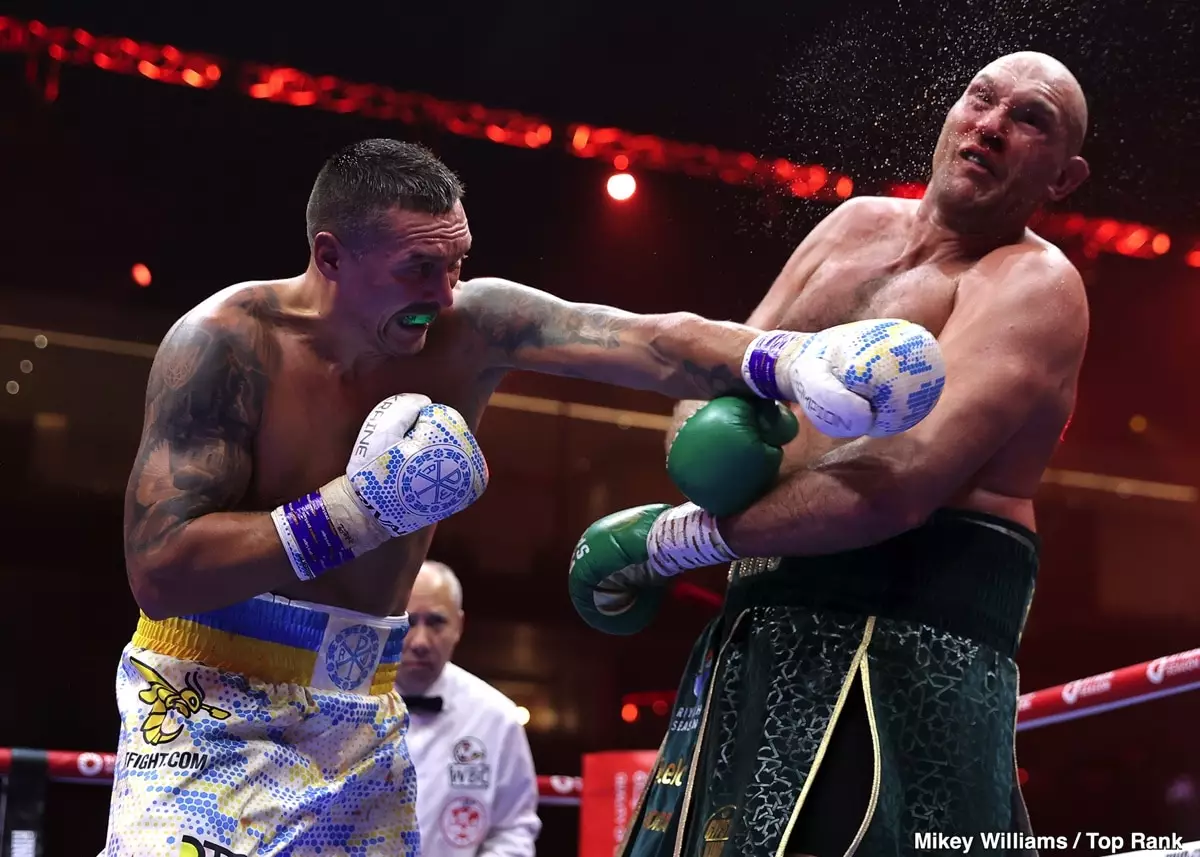Tyson Fury, the larger-than-life figure in heavyweight boxing, finds himself at a crossroads as he prepares for a rematch against Oleksandr Usyk this December. In the wake of his controversial loss to Usyk in May, Fury has publicly stated that he refuses to accept the judges’ decision. He insists that his performance during that fight was sufficient for victory, attributing his perceived loss to what he describes as “opinionated” judging. Such sentiments indicate a troubling pattern in Fury’s mental state, one that can affect his performance in the ring and his future as a fighter.
Fury’s assertion that he won the bout despite the actual outcome is emblematic of a fighter grappling with the harsh realities of competition. He has reportedly watched the fight over a thousand times, firmly believing that had it not been for a disastrous ninth round—one where he was seemingly saved from a knockout—he would be celebrated as the winner. This mindset might provide temporary comfort, but it also illustrates a refusal to confront the truth of his fading prowess in the ring. Sporting a record of 34 wins, 1 loss, and 1 draw, Fury’s earlier dominance in heavyweight boxing is being called into question, particularly after his performance in the first Usyk fight and a controversial, and arguably undeserved, decision against Francis Ngannou.
In the world of professional boxing, perception often holds as much weight as performance. For Fury, the perception of him as an indomitable champion is at odds with the reality of his recent bouts. Many analysts and fans argue that he has not just been resting on his laurels but has also benefitted from favorable matchmaking that masked his diminishing skills. The notion that Fury could have lost both of his last fights, instead of standing at a respectable 1-1, reveals a potential decline in both confidence and ability. A loss to Usyk again would only further cement his status as a fighter in decline, straddling the line between still relevant and past his prime.
As Fury turns 37, the inevitable march of time complicates his narrative, especially in a sport notorious for its demand on physical prowess and mental sharpness. While he claims that age hasn’t hindered him—going so far as to suggest that 36 is merely youthful—contrary evidence suggests otherwise. A lack of discipline, visible in his physique and seeming lack of preparation for pivotal bouts, betrays his bravado. The luxurious lifestyle he enjoys, complete with riches and comfort, can often lead to decreased motivation, contrary to the austere discipline required at the top levels of boxing.
Fury seems to be living in a past definition of himself as a dynamic fighter, rather than adapting to his current circumstances and the ever-evolving landscape of heavyweight boxing, where younger, more agile contenders await.
The Weight of Delusion
Fury’s refusal to acknowledge losses as they are presents a deeper issue that could undermine his competitive spirit. Acknowledgment of failure and learning from it is essential in sports, especially in a brutal contact sport like boxing where mental clarity can often be the difference between victory and defeat. It raises an essential question—can a fighter who continues to deny his weaknesses find a path to future success? As he heads into this crucial rematch against Usyk, some experts argue that embracing his past failures might actually empower Fury to regain the true essence of his boxing abilities.
The upcoming fight at the Kingdom Arena in Riyadh stands as a significant event that could redefine Fury’s career trajectory. If he were to lose yet again, continued denial could render him a figure of ridicule rather than respect within the boxing community.
All eyes will be on Fury as he steps into the ring with Usyk once more. Indeed, if he is not able to transform his rhetoric into results, fans may witness the rapid decline of a fighter who once appeared on top of the world. Usyk, with his own psychological edge and proven interim capabilities, enters as the favorite—a trend that could persist if Fury remains stuck in a cycle of denial.
This rematch offers not just a second chance for Fury but potentially a moment of reckoning. He needs to address his past, shed the layers of denial, and navigate the complexities of a sport that rewards adaptation and resilience. In doing so, he could once more redefine his legacy, rather than let it be written by the hands of others. Ultimately, Tyson Fury’s journey will come down to one crucial element: the battle not just against his opponents, but against himself.

